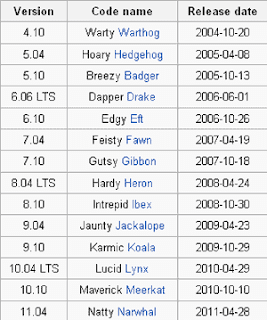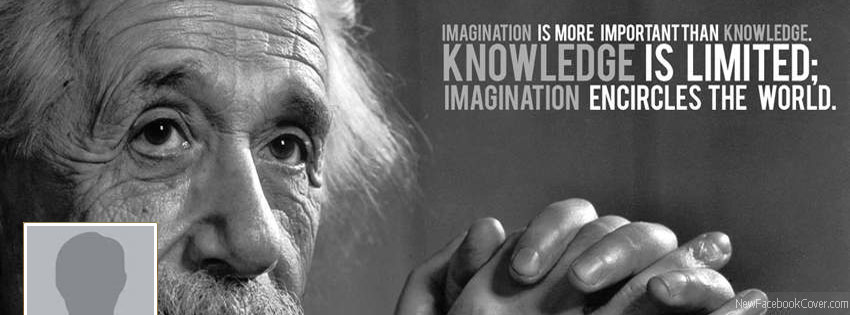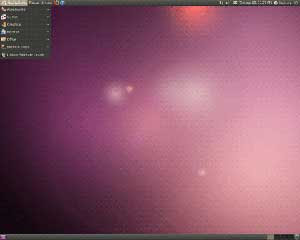Ubuntu is a computer operating system originally based on the Debian GNU/Linux distribution and distributed as free and open source software with additional proprietary software available.
 Ubuntu is named after the Southern African ethical principle Ubuntu ("humanity towards others"). Ubuntu provides an up-to-date, stable operating system for the average user, with a strong focus on usability and ease of installation. Web statistics suggest that Ubuntu's share of Linux desktop usage is about 50%, and upward trending usage as a web server.
Ubuntu is named after the Southern African ethical principle Ubuntu ("humanity towards others"). Ubuntu provides an up-to-date, stable operating system for the average user, with a strong focus on usability and ease of installation. Web statistics suggest that Ubuntu's share of Linux desktop usage is about 50%, and upward trending usage as a web server.
Ubuntu is composed of many software packages, of which the vast majority are distributed under a free software license (also known as open source). The main license used is the GNU General Public License (GNU GPL) which, along with the GNU Lesser General Public License (GNU LGPL), explicitly declares that users are free to run, copy, distribute, study, change, develop and improve the software. Ubuntu is sponsored by the UK-based company Canonical Ltd., owned by South African entrepreneur Mark Shuttleworth.
Ubuntu is a fork of the Debian project's code base. The original aim was to release a new version of Ubuntu every six months, resulting in a more frequently updated system. Ubuntu's first release was on October 20, 2004.
Ubuntu packages are based on packages from Debian's unstable branch: both distributions use Debian's deb package format and package management tools (APT and Synaptic). Debian and Ubuntu packages are not necessarily binary compatible with each other, however, and sometimes .deb packages may need to be rebuilt from source to be used in Ubuntu.
Ubuntu 10.04, which was released on April 29, 2010, is the current Long Term Support (LTS) release. Canonical releases LTS versions every two years, with Ubuntu 10.10 Maverick Meerkat as the next normal version for release on October 10, 2010.
Ubuntu focuses on usability, security and stability. The Ubiquity installer allows Ubuntu to be installed to the hard disk from within the Live CD environment, without the need for restarting the computer prior to installation.
The partner repository is disabled by default and can be enabled by the user. Some popular products distributed via the partner repository as of August 2010 are Adobe Flash Player, Adobe Reader, Skype and Sun Java.
 There are two Ubuntu releases per year, using the year and month of the release as the version number. The first Ubuntu release, for example, was Ubuntu 4.10 and was released on October 20, 2004. Version numbers for future versions are provisional; if the release is delayed the version number changes accordingly.
There are two Ubuntu releases per year, using the year and month of the release as the version number. The first Ubuntu release, for example, was Ubuntu 4.10 and was released on October 20, 2004. Version numbers for future versions are provisional; if the release is delayed the version number changes accordingly.
 Ubuntu is named after the Southern African ethical principle Ubuntu ("humanity towards others"). Ubuntu provides an up-to-date, stable operating system for the average user, with a strong focus on usability and ease of installation. Web statistics suggest that Ubuntu's share of Linux desktop usage is about 50%, and upward trending usage as a web server.
Ubuntu is named after the Southern African ethical principle Ubuntu ("humanity towards others"). Ubuntu provides an up-to-date, stable operating system for the average user, with a strong focus on usability and ease of installation. Web statistics suggest that Ubuntu's share of Linux desktop usage is about 50%, and upward trending usage as a web server.Ubuntu is composed of many software packages, of which the vast majority are distributed under a free software license (also known as open source). The main license used is the GNU General Public License (GNU GPL) which, along with the GNU Lesser General Public License (GNU LGPL), explicitly declares that users are free to run, copy, distribute, study, change, develop and improve the software. Ubuntu is sponsored by the UK-based company Canonical Ltd., owned by South African entrepreneur Mark Shuttleworth.
Ubuntu is a fork of the Debian project's code base. The original aim was to release a new version of Ubuntu every six months, resulting in a more frequently updated system. Ubuntu's first release was on October 20, 2004.
Ubuntu packages are based on packages from Debian's unstable branch: both distributions use Debian's deb package format and package management tools (APT and Synaptic). Debian and Ubuntu packages are not necessarily binary compatible with each other, however, and sometimes .deb packages may need to be rebuilt from source to be used in Ubuntu.
Ubuntu 10.04, which was released on April 29, 2010, is the current Long Term Support (LTS) release. Canonical releases LTS versions every two years, with Ubuntu 10.10 Maverick Meerkat as the next normal version for release on October 10, 2010.
Ubuntu focuses on usability, security and stability. The Ubiquity installer allows Ubuntu to be installed to the hard disk from within the Live CD environment, without the need for restarting the computer prior to installation.
The partner repository is disabled by default and can be enabled by the user. Some popular products distributed via the partner repository as of August 2010 are Adobe Flash Player, Adobe Reader, Skype and Sun Java.
 There are two Ubuntu releases per year, using the year and month of the release as the version number. The first Ubuntu release, for example, was Ubuntu 4.10 and was released on October 20, 2004. Version numbers for future versions are provisional; if the release is delayed the version number changes accordingly.
There are two Ubuntu releases per year, using the year and month of the release as the version number. The first Ubuntu release, for example, was Ubuntu 4.10 and was released on October 20, 2004. Version numbers for future versions are provisional; if the release is delayed the version number changes accordingly.Official Ubuntu editions, are the following:
- Ubuntu Desktop Edition, designed for desktop and laptop PCs.
- Ubuntu Netbook Edition, (formerly Ubuntu Netbook Remix) designed for netbooks and other ultra-portables.
- Ubuntu Server Edition, made for use in servers.
The Ubuntu variants recognized by Canonical as contributing significantly towards the Ubuntu project are the following:
- Edubuntu, a GNOME-based subproject and add-on for Ubuntu, designed for school environments and home users.
- Kubuntu, a desktop distribution using the KDE desktop environment rather than GNOME.
- Mythbuntu, designed for creating a home theater PC with MythTV and uses the Xfce desktop environment.
- Ubuntu Studio, a distribution made for professional video and audio editing, comes with higher-end free editing software and is a DVD .iso image unlike the live CD the other Ubuntu distributions use.
- Xubuntu, a "lightweight" distribution based on the Xfce desktop environment instead of GNOME, designed to run more efficiently on low-specification computers. It is, however, less lightweight than one would expect based on its using a less taxing window manager.
Tags:
linux and web hosting, linux dedicated, linux unix,linux courses, unix training, using linux, unbuntu









